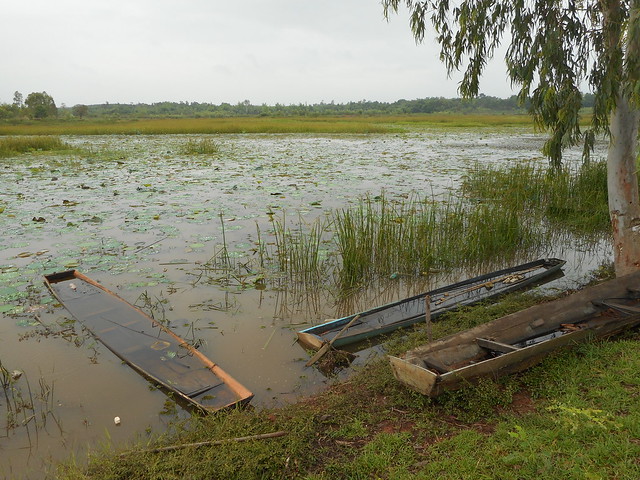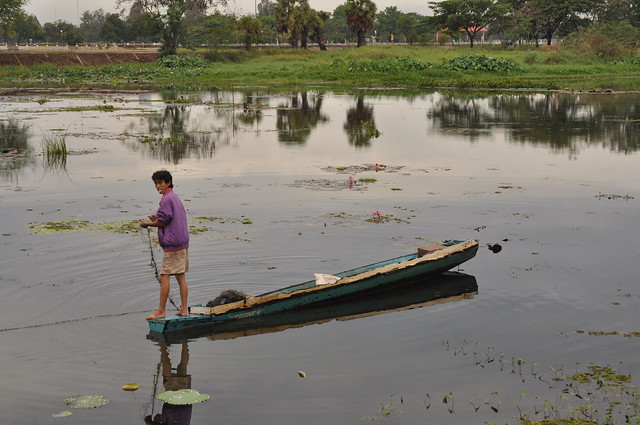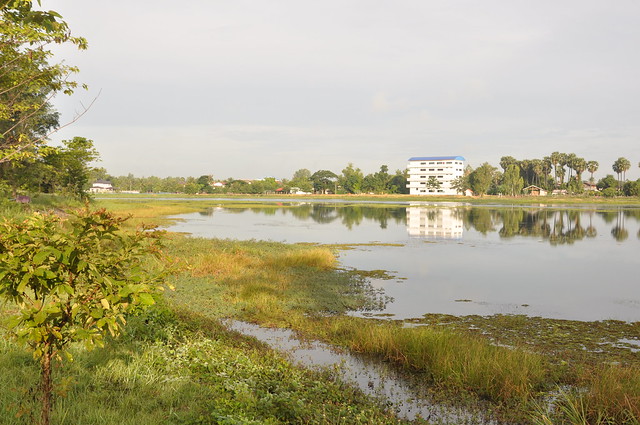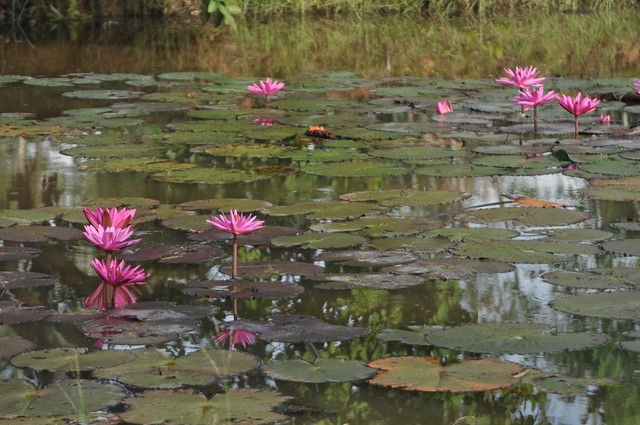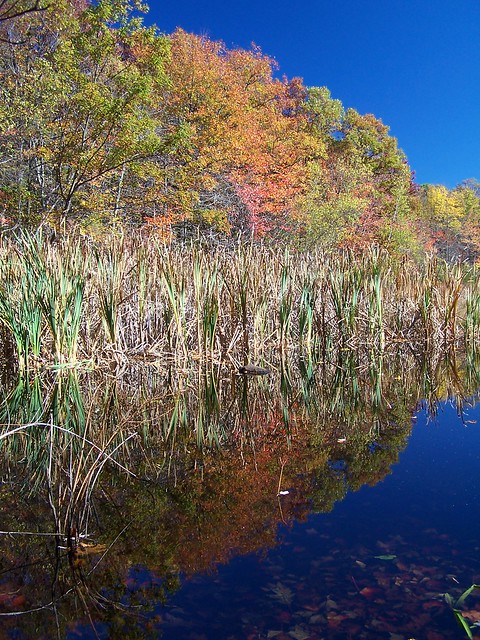What an interesting language I have grown up with.
In a tree in our yard, there are some pretty red flowers.
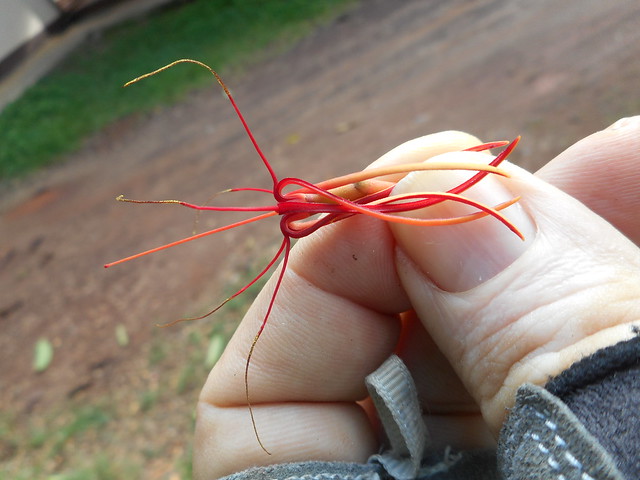 |
| Pretty red flowers |
The problem is that these red flowers are growing out of a mango tree.
But they are not mango flowers. These are mango flowers:
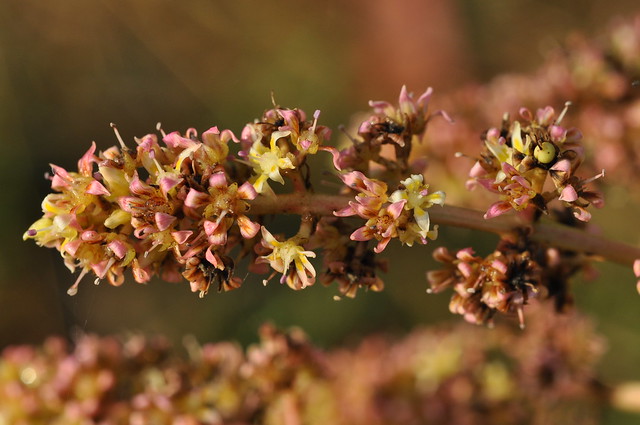 |
| Mango flowers |
The red flowers are growing on a parasitic plant. This plant makes seeds that germinate on the branches of the tree and then tap into the trees vascular system of the tree for nutrients. Let the host tree do all the work of making roots and getting water and nutrients from the soil.
So, pretty flowers, yes.
But pretty nasty as well.
(Somehow our language got to the point where "pretty" can end up being an adjective meaning "beautiful" and also an adverb meaning "very". So we can say that one thing is pretty while another is pretty ugly, and they are opposites. And why do we then say "very pretty" vs. "pretty pretty". This is all pretty confusing.)
You see, the more pretty red flowers that the tree has, the fewer mangos it will have. And I like mangos. Mangos are my favorite fruit. They're the reason I moved to Thailand. (Well, not exactly, but close.)
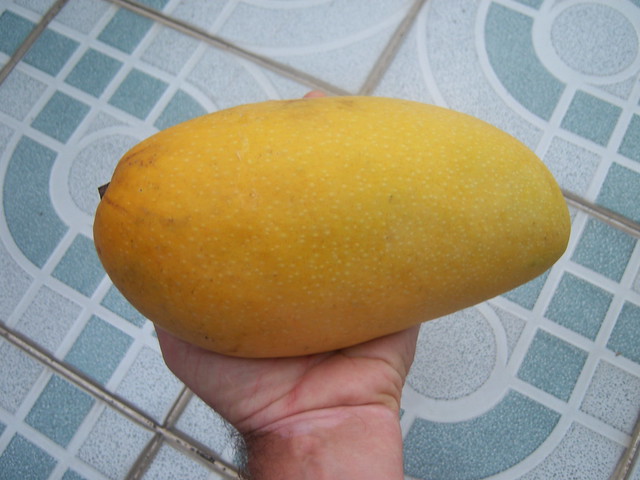 |
| A lot of mango goodness here |
So, I'm left with a choice.
Do I want some pretty red flowers?
Or do I want some pretty tasty fruit?
I could leave the parasites on the tree, and have both red and yellow (mango) flowers. But the mango production would be reduced more and more with time.
Life is like that. Often are choices aren't between good and bad or right and wrong. The choices are often between one way and a better way.
The apostle Paul writes about about a "better way" in 1 Corinthians 12, and 13. In 1 Corinthians 12, Paul is talking about the use of spiritual gifts in the church. In the church, the body of Christ, we are each given different gifts in order to help build up the church. 1 Corinthians 12:31 we read:
But eagerly desire the greater gifts. And now I will show you the most excellent way.
And then Paul goes on to talk about love.
It's great to desire spiritual gifts, but if we don't use our gifts in love, we are just like resounding gongs or clanging cymbals.
Or pretty, parasitic flowers.
In Phon Phisai, we have this nice community of new believers. Most of them knew nothing about Christ until just a few months ago. One of the challenges we have now is helping them to discover and use their spiritual gifts to help build each other up in the body of Christ. But it is so much more than that. It is about loving each other and using our gifts, with that love, to help build each other up. We want to have a church of people who give, not just take. Pretty flowers that bear fruit, not just parasites.

